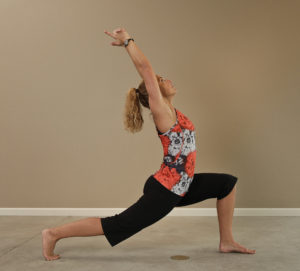Thriving as You Age

Exercising isn’t just about looking good. Staying active and maintaining good health are critical for enhancing your quality of life and ability to perform activities of daily living (ADLs) as you age. Regular exercise strengthens your body, boosts energy levels, and improves overall function, enabling you to enjoy independence and vitality in your later years.
If you lose your health, it can significantly impact your ability to perform simple daily activities, creating dependence on others and limiting your ability to live your best life.
Simple Daily Activities
Grocery Shopping:
Strength training makes lifting bags and pushing carts manageable, while good cardiovascular health ensures you can walk through stores without becoming winded. Many deconditioned elders are forced to rely on others or online shopping to purchase what they need.
Leaving the House:
Maintaining mobility through regular exercise prevents stiffness and joint pain, making it easier to leave the house, stay socially engaged, and combat feelings of isolation. As an individual’s health deteriorates, they are less likely to want to go out for any reason.
Driving:
Core and upper body strength improve posture and reaction time while driving, contributing to safer and more comfortable experiences behind the wheel. If you lose the ability to rotate at the spine and turn your neck, you will lose the ability to drive and will become reliant on others to get you where you want to go.
Using the Toilet:
Core and leg strength allow you to rise and lower from the toilet easily, reducing reliance on assistance and enabling you to maintain dignity and autonomy.
Getting Out of a Chair:
Functional strength exercises, such as squats, mimic everyday movements like standing up from a seated position, preserving your independence in basic tasks.
Navigating Stairs:
If you lose significant leg strength and cardiovascular fitness, it will limit your ability to climb stairs safely. If navigating stairs becomes taxing, you will avoid stairs causing further deterioration. It may force you to have to move from your two-story home. Losing leg strength can strain joints and increase the risk of falls when climbing stairs.
Balance and Fall Prevention:
 Exercises that enhance balance, such as strength training, yoga or tai chi, reduce the likelihood of falls. This is crucial for avoiding injuries that can significantly impact mobility and independence. Death due to falls, broken bones, and secondary complications is a major fear for seniors.
Exercises that enhance balance, such as strength training, yoga or tai chi, reduce the likelihood of falls. This is crucial for avoiding injuries that can significantly impact mobility and independence. Death due to falls, broken bones, and secondary complications is a major fear for seniors.
Travel:
Strong muscles, endurance, and flexibility make it easier to navigate airports, carry and place luggage in overhead bins, manage travel delays, and explore destinations without fatigue or pain, allowing you to fully enjoy travel experiences. Most people look forward to exploring the globe after they retire, however, if your health deteriorates as you age, you will lose your ability to travel.
Attending Family Reunions:
Staying active ensures you can participate in gatherings, play with grandchildren, and socialize comfortably, fostering stronger family connections.
Camping and Outdoor Activities:
Good physical fitness allows you to hike, set up tents, or simply enjoy the outdoors without feeling limited, keeping adventurous pursuits within reach.
By investing in your health through regular exercise, including strength training, cardiovascular conditioning, and stretching/mobility, you enhance your physical and mental health, longevity, cognitive function, quality of life, independence, and freedom to live your life as you like in your later years.
Yours in health & fitness,
Sherri McMillan
